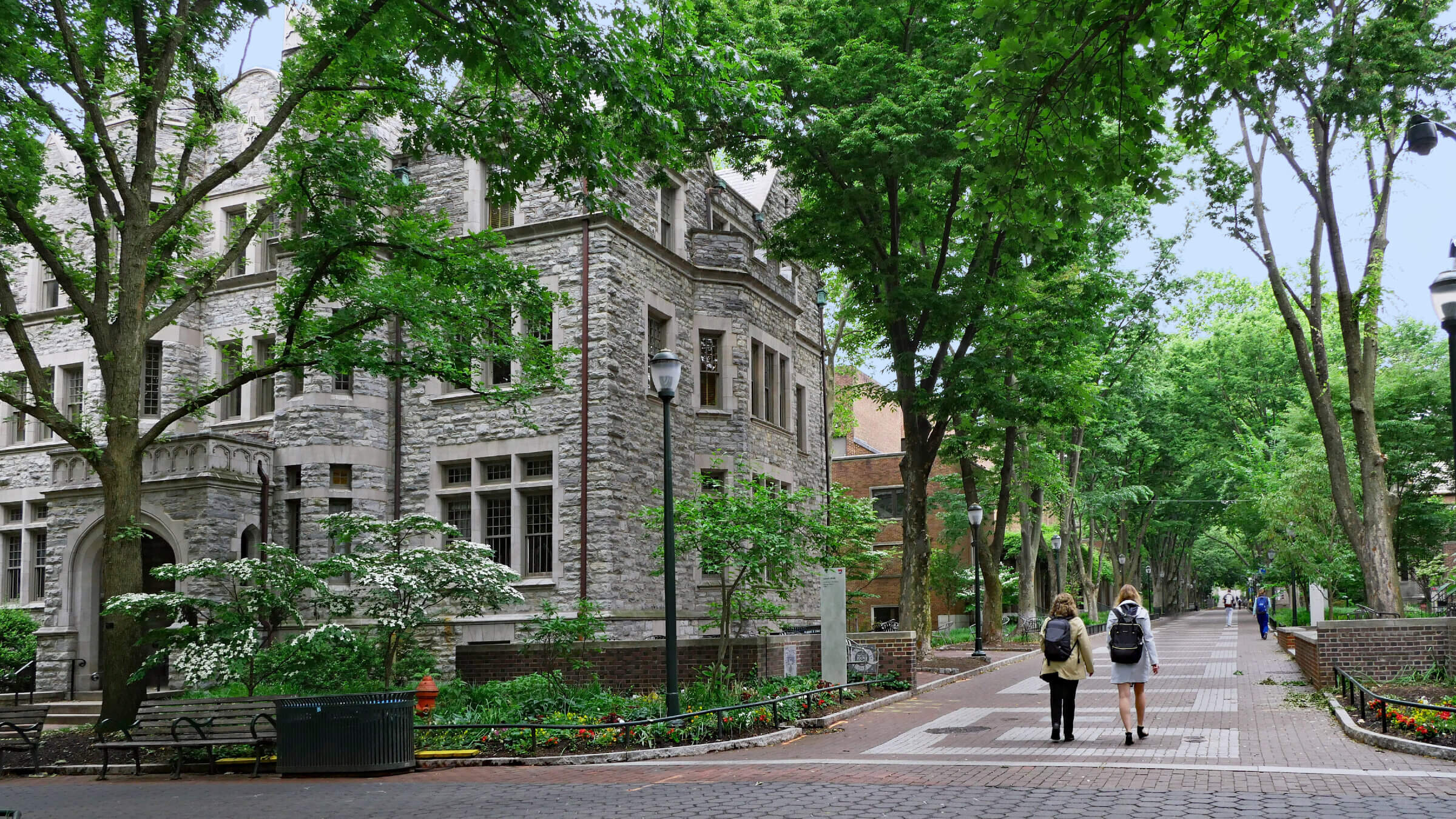Faculty senate at University of Pennsylvania condemns ‘intimidation’ by donors over Israel
Academic freedom ‘is not a commodity that can be bought or sold,’ read the faculty statement

The University of Pennsylvania’s Locust Walk in 2019. Photo by peterspiro/iStock
Leaders of the faculty senate at the University of Pennsylvania decried what they described as “intimidation” against students and faculty at the school by outside donors and activists upset over activism related to the Israeli-Palestinian conflict on campus.
“Academic freedom is an essential component of a world-class university and is not a commodity that can be bought or sold by those who use their pocketbooks to shape our mission,” the three leaders of the senate, an elected body separate from the faculty’s union, wrote in a statement Thursday.
The Daily Pennsylvanian, the school’s student newspaper, first reported on the statement.
“Full-throated defense of academic freedom from Penn’s faculty senate,” Aaron Chalfin, a criminology professor at the school, wrote on the X platform (formerly Twitter).
Others, including the conservative Jewish columnist Noah Pollak, were more critical.
“Professors tell Penn donors and alums they can take their money and shove it, all with a subtle vibe of ‘you Jews can’t manipulate us with your money,’” Pollak wrote on X. “Penn alums, why would you give to this broken institution?”
The faculty senate “tri-chairs” who released the statement include Tulia Falleti, a political science professor, Vivian Gadsen, an education scholar, and Eric Feldman, a law professor at the school.
The statement comes after two major donors to the university, conservative Jewish billionaires Ronald Lauder and Marc Rowan, both said in the last two weeks that they would stop donating to the school over its alleged failure to combat antisemitism on campus.
Rowan called on alumni and donors to “close their checkbooks” until M. Elizabeth Magill, the university president, and Scott Bok, who leads its board of trustees, resigned.
Julie Platt, vice chair of the board of trustees, has expressed “full confidence” in both Magill and Bok. Platt is also chair of the Jewish Federations of North America, one of the largest Jewish institutions in the country.
“I join with the many members of the Penn family in expressing solidarity with all those who have been impacted by the horrific assault on Israel by Hamas and in condemning these hateful acts of terror,” Platt told The Daily Pennsylvanian. “The University has publicly committed to unprecedented steps to further combat antisemitism on its campus, reaffirmed deep support for our Jewish community, and condemned the devastating and barbaric attacks on Israel by Hamas.”
Latest twist in feud over Israel, antisemitism
The uproar comes amid claims from Lauder that the campus has become “openly hostile” to Jews. In September, a Palestinian literary festival took place on campus, featuring speakers that some Israel advocacy groups described as antisemitic. Following the Oct. 7 attack by Hamas in southern Israel, during a march on campus, a speaker described Israeli civilians who were killed as “legitimate targets.”
A widely circulated video of the rally featured an incorrect caption that claimed the crowd was chanting “we want Jewish genocide.” They were actually saying “we charge you with genocide,” referring to Israel.
Magill has released several statements condemning the Hamas attack and saying that calls to violence would not be allowed on campus.
In addition to Rowan and Lauder, hedge fund manager Clifford Asness, Highsafe Ventures founder Jonathan Jacobson and venture capitalist David Magerman have reportedly cut ties with the University of Pennsylvania.
The New Republic reported in August that Rowan, the chief of Apollo Global Management, had pressured the Anti-Defamation League to remove “woke” left-wing material from its educational programming.
Lauder, a major donor to conservative political causes, pledged $25 million to create the Anti-Semitism Accountability Project in 2019, though the organization quickly went dormant.
The controversy over Israel at the University of Pennsylvania is one of several across the country that have flared since the Oct. 7 attack by Hamas and subsequent Israeli military action in Gaza. Activists are circulating a blacklist of individuals affiliated with a group of progressive student organizations at Harvard that released a statement blaming Israeli policies for the terrorist attack, while a professor at the University of California, Davis, is under fire for threatening violence against “Zionist journalists.”
An instructor at Stanford was removed from his role after allegedly singling out and bullying Jewish students over Israel during a class last week.













